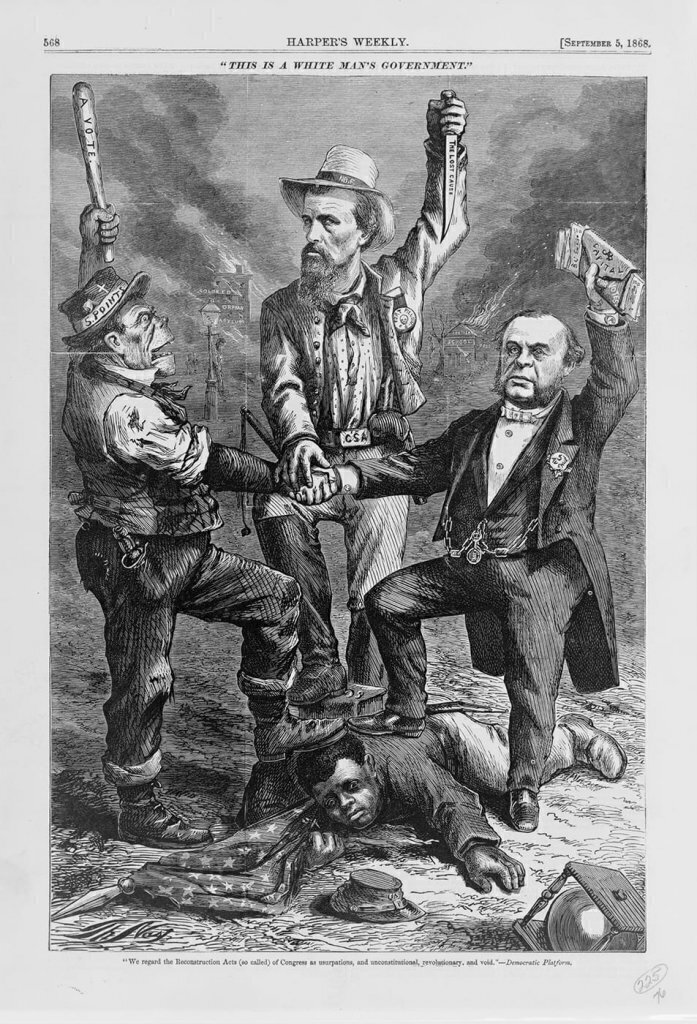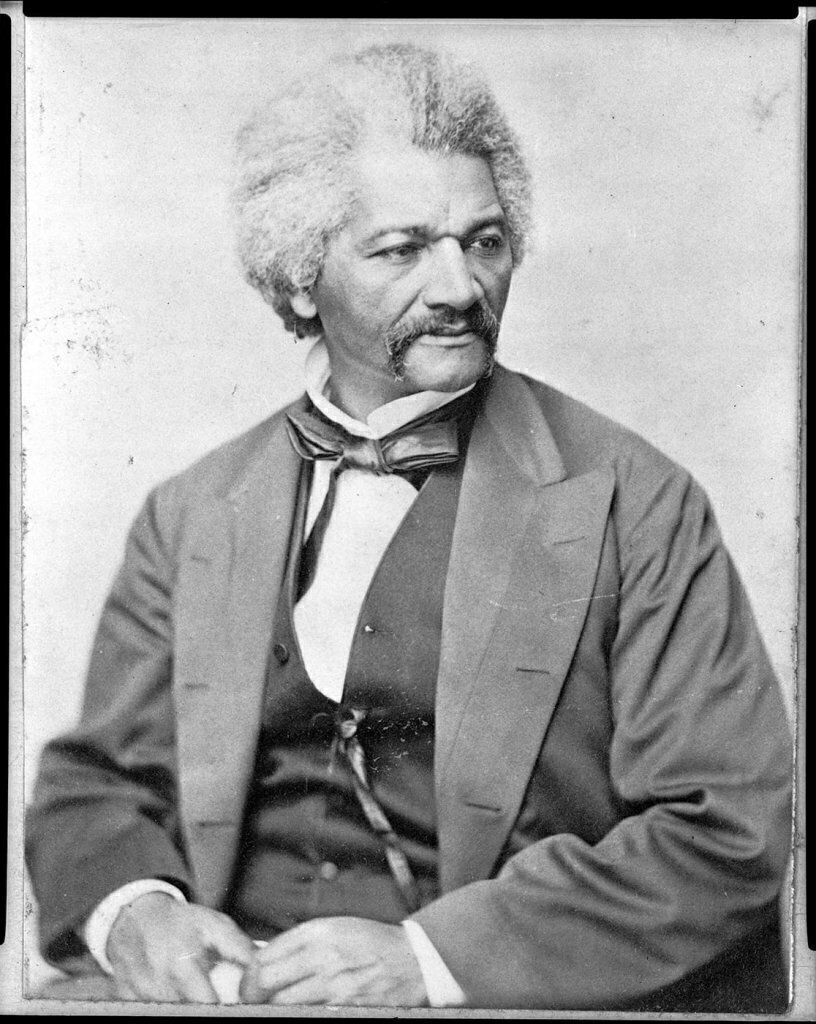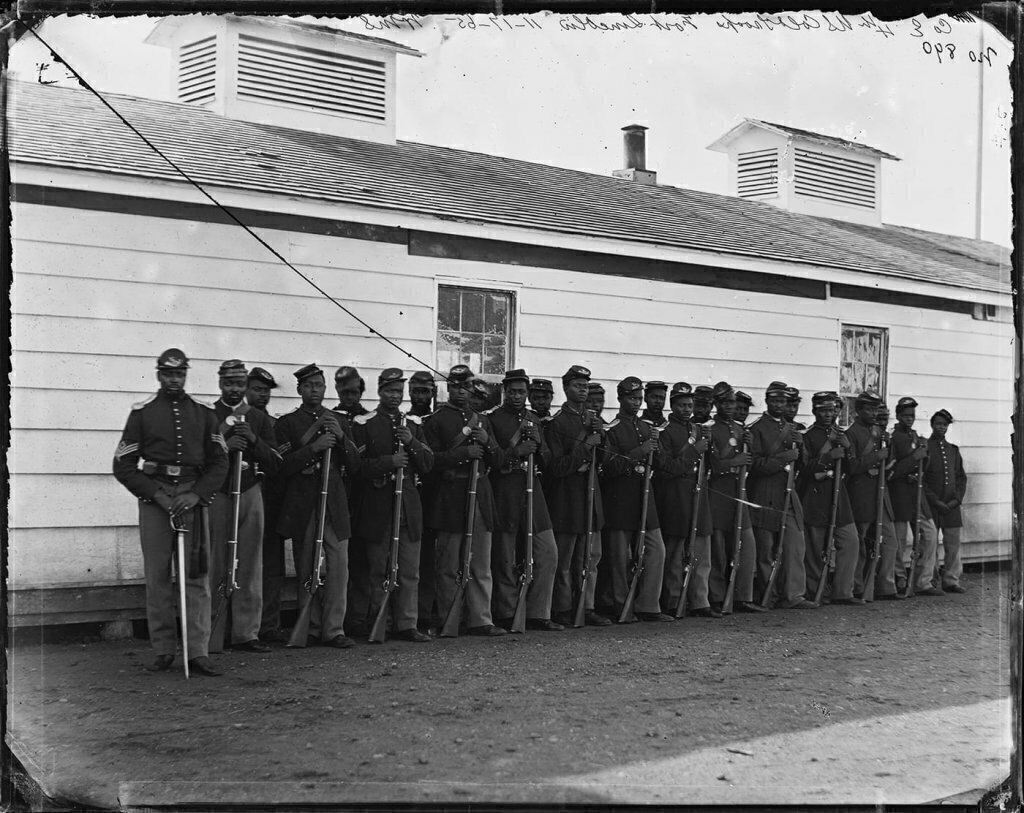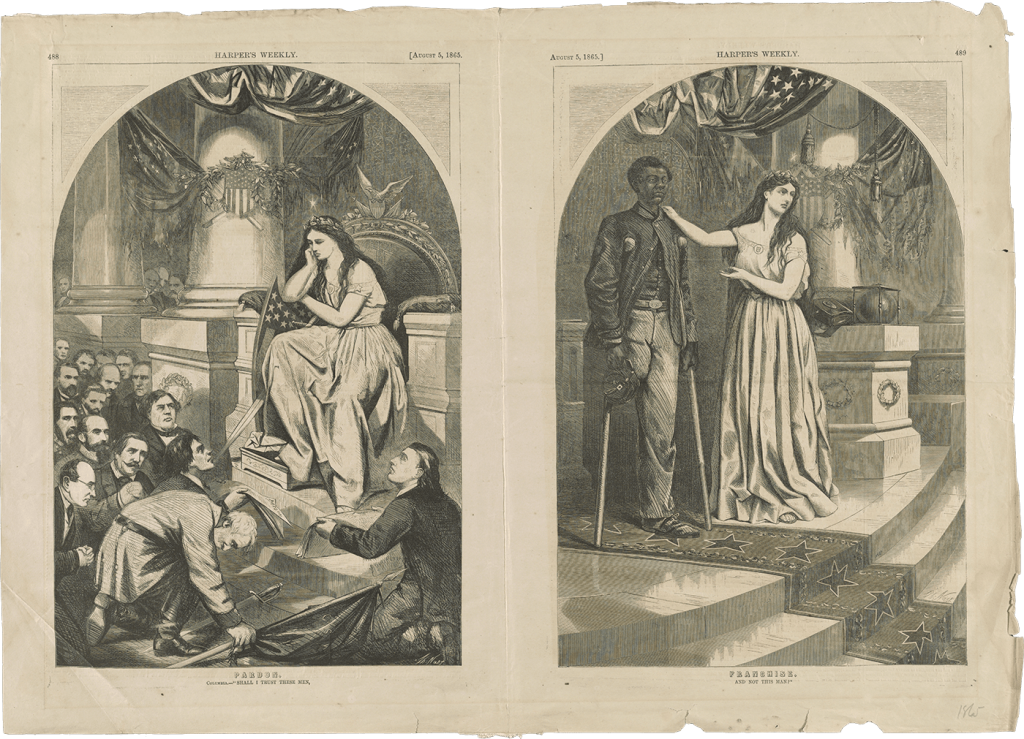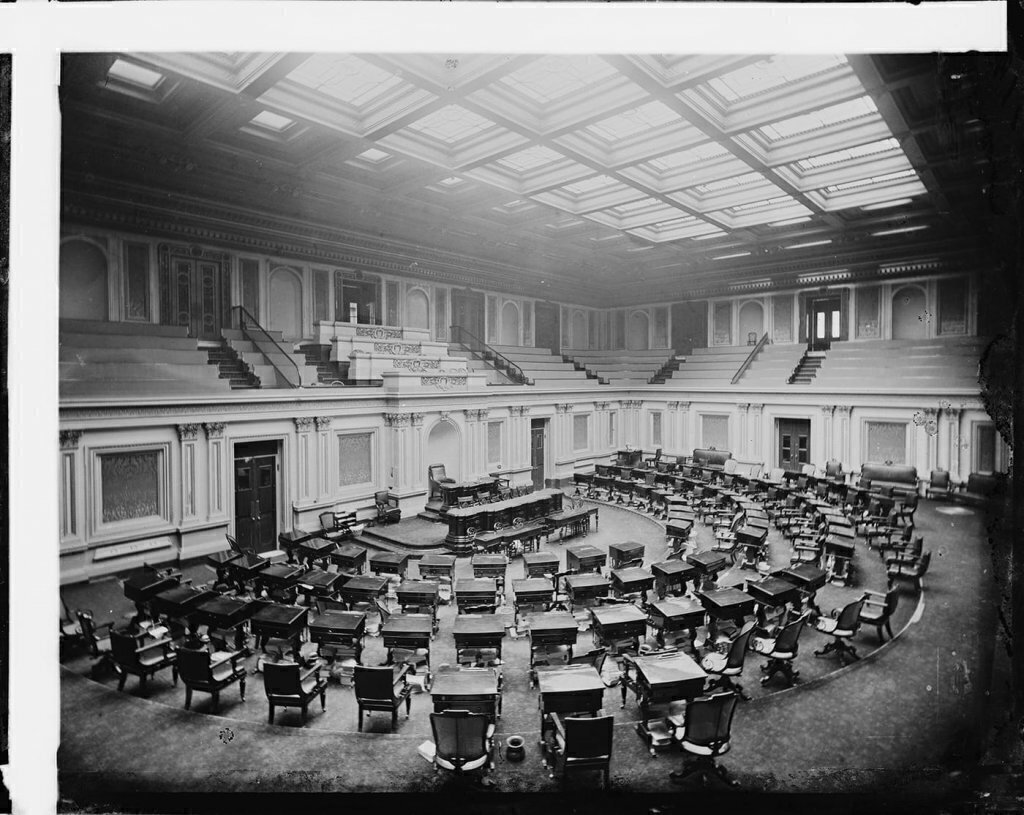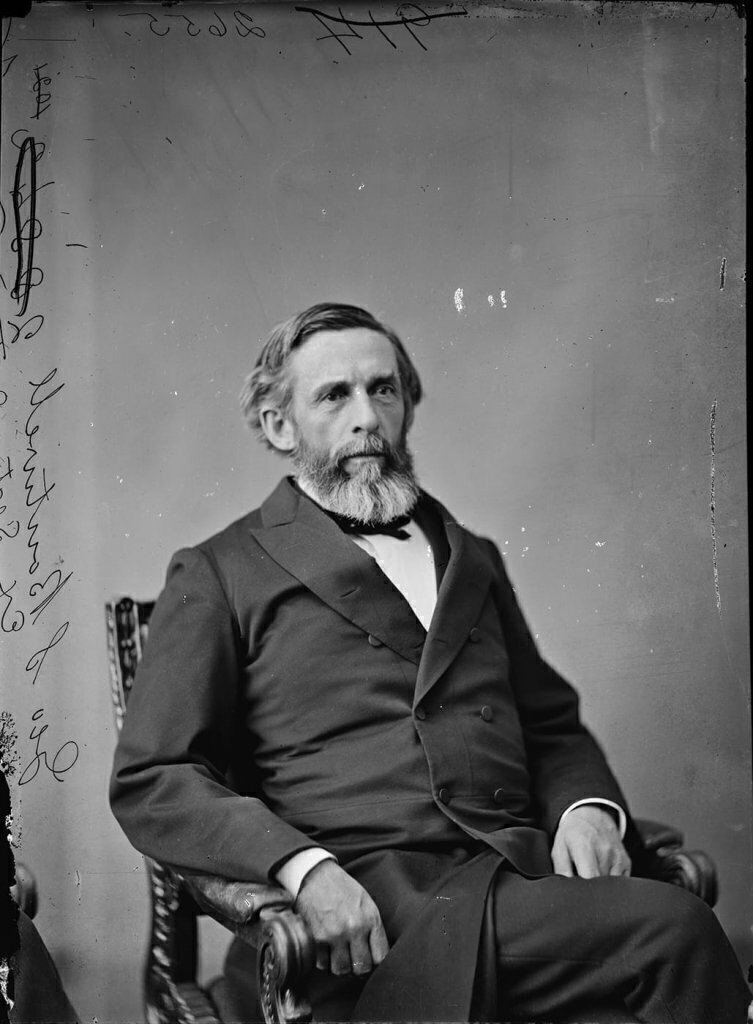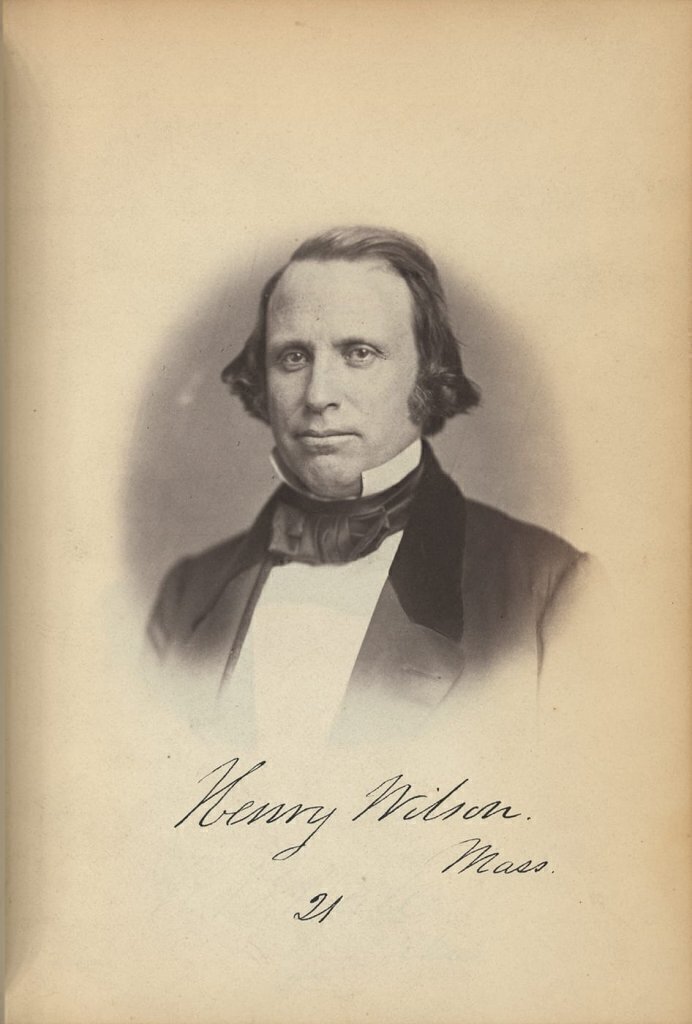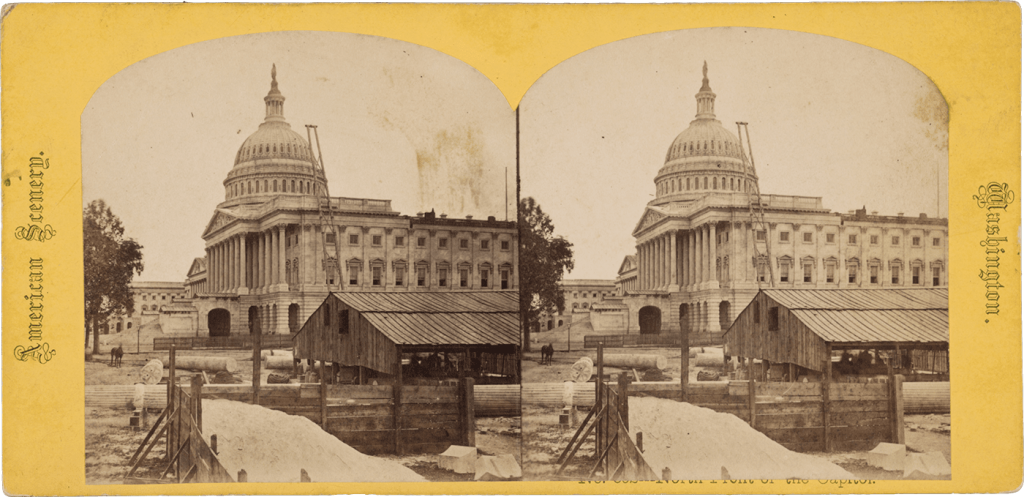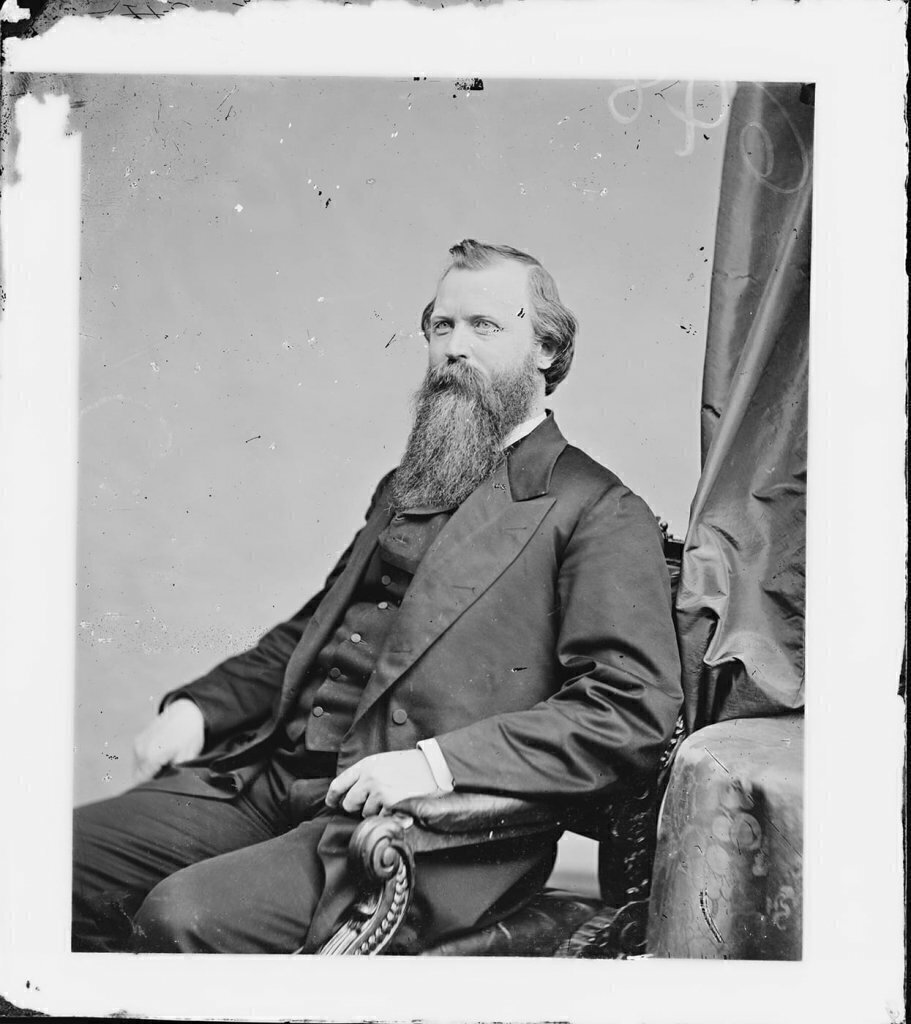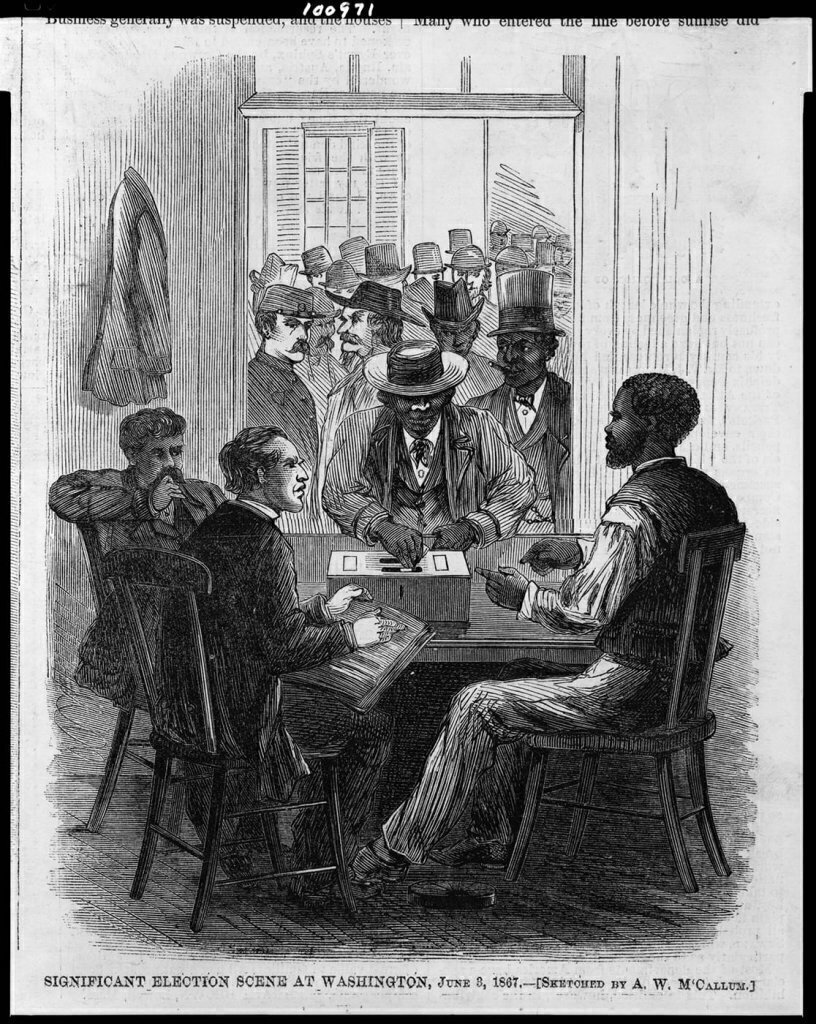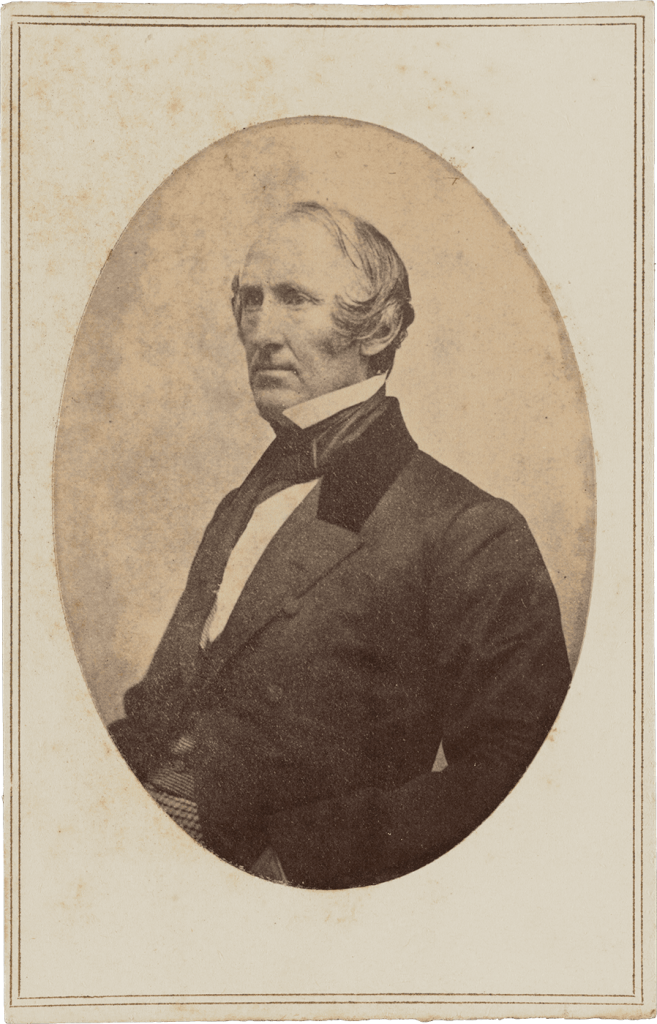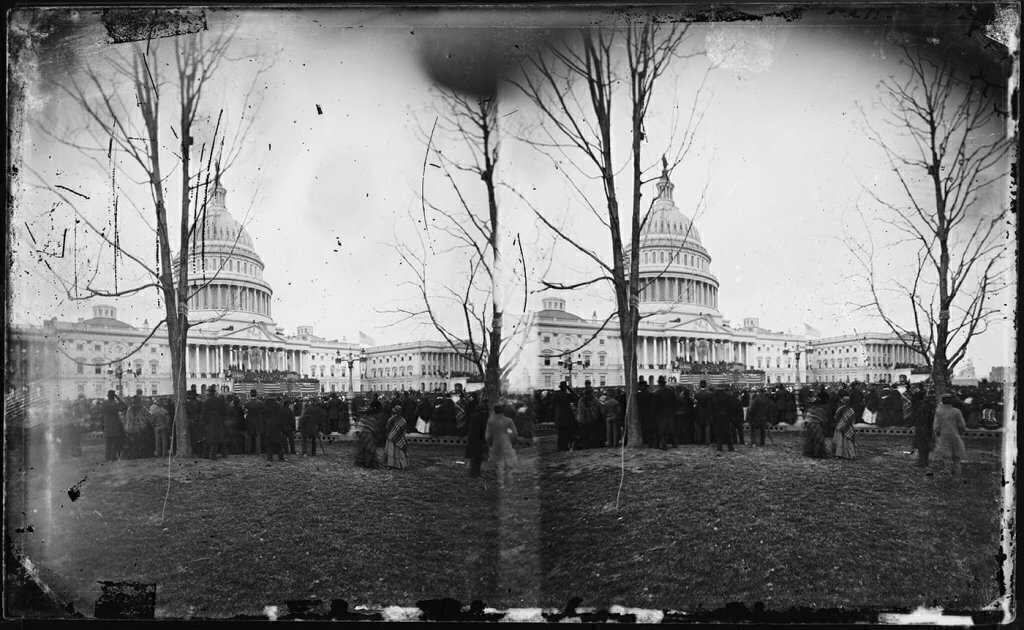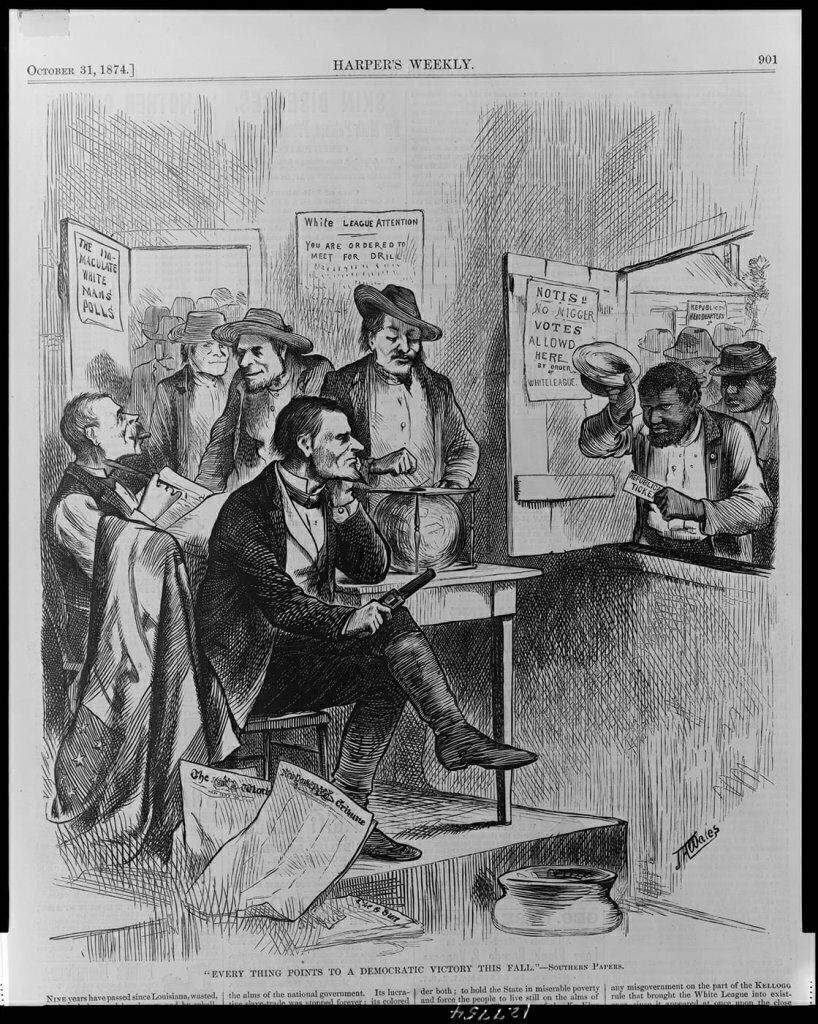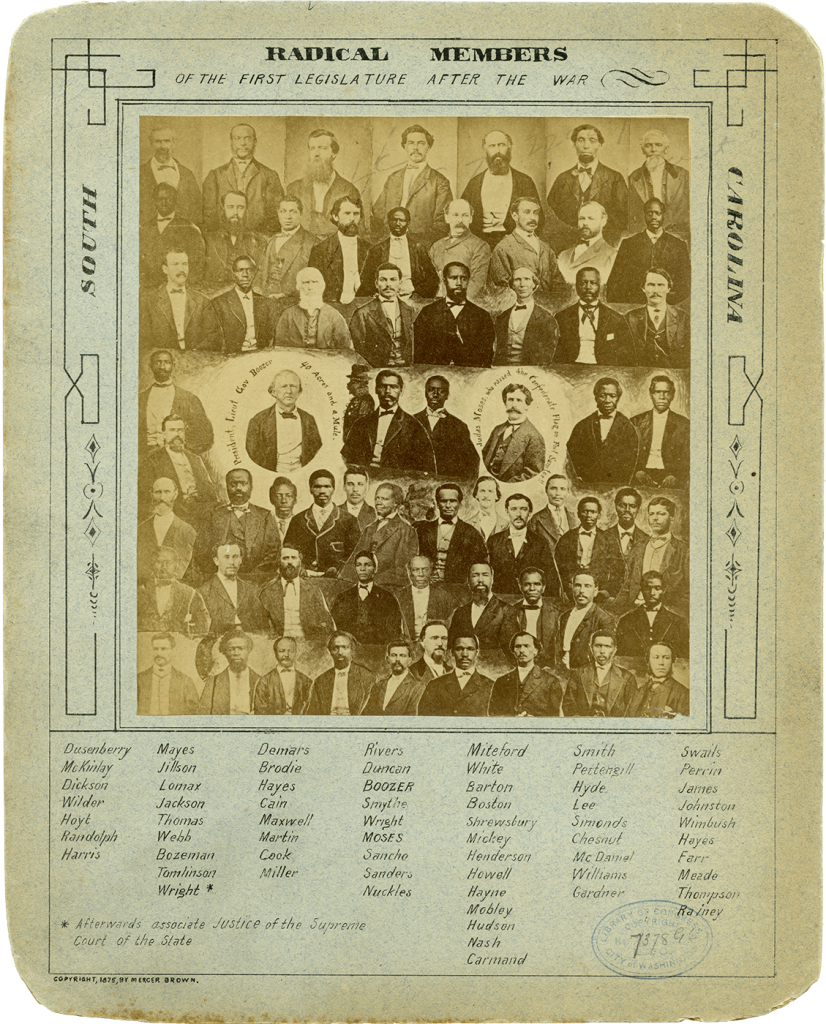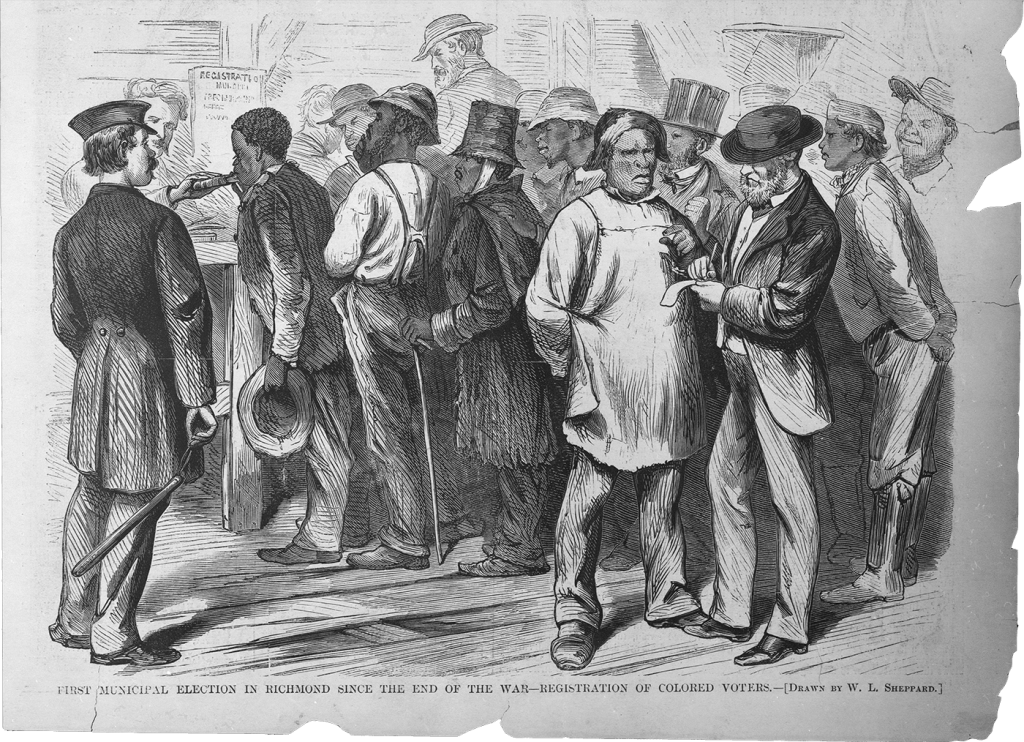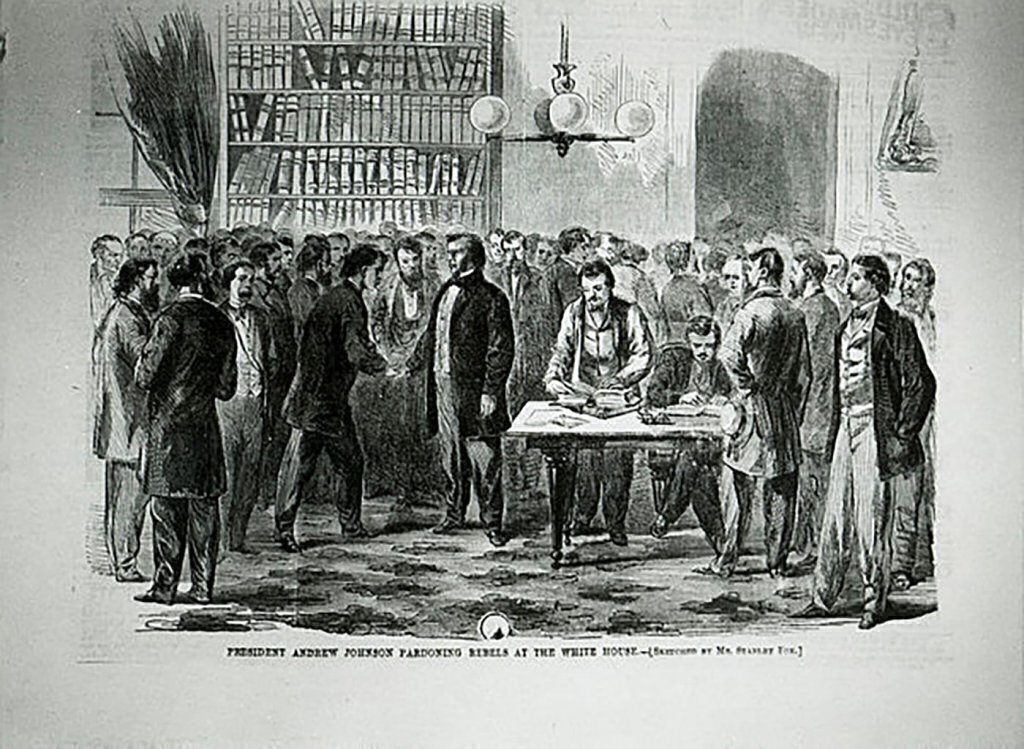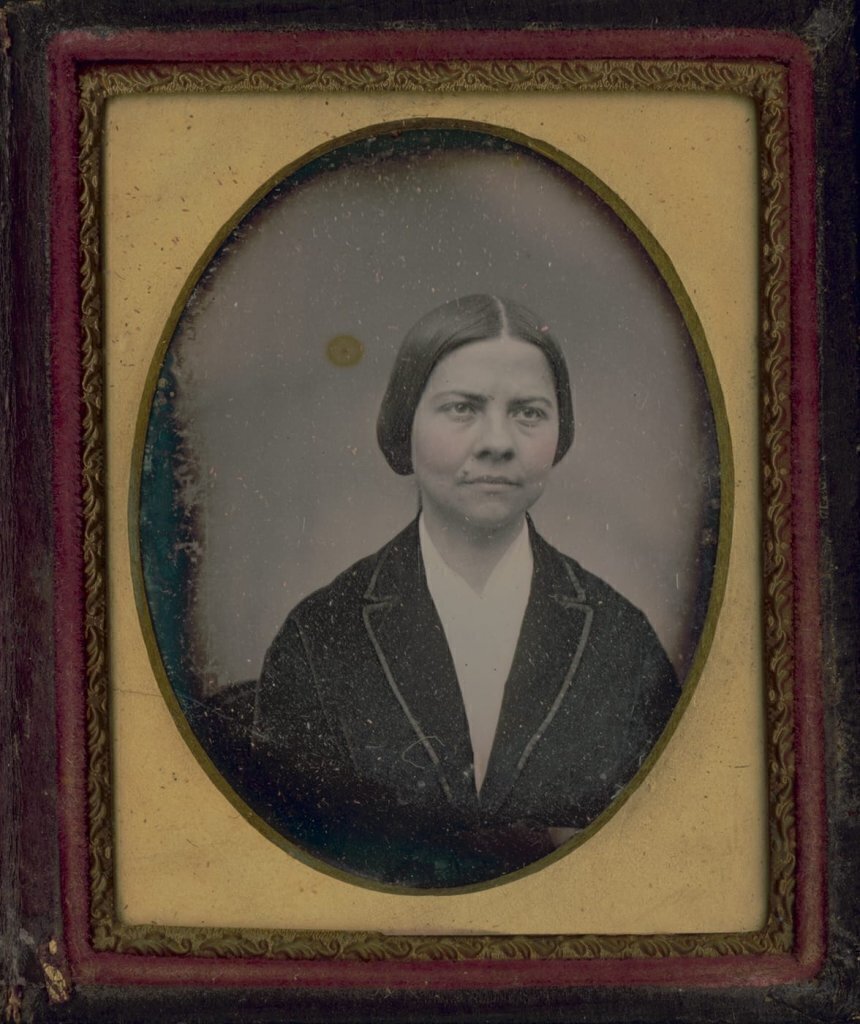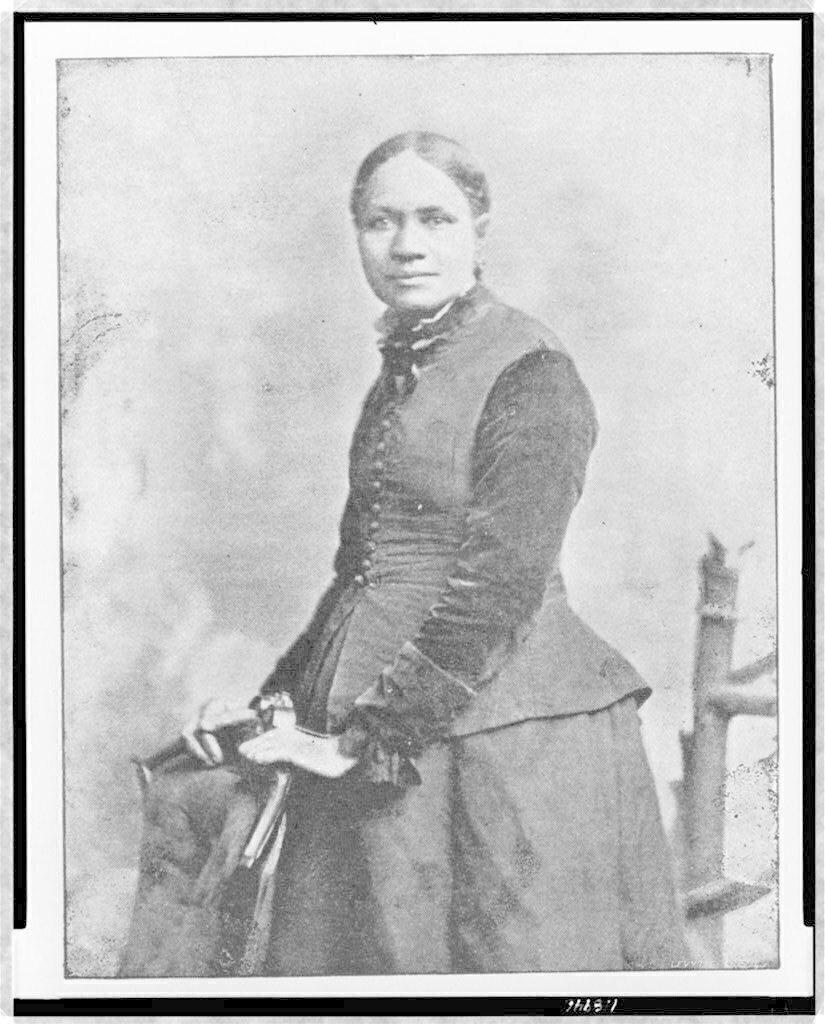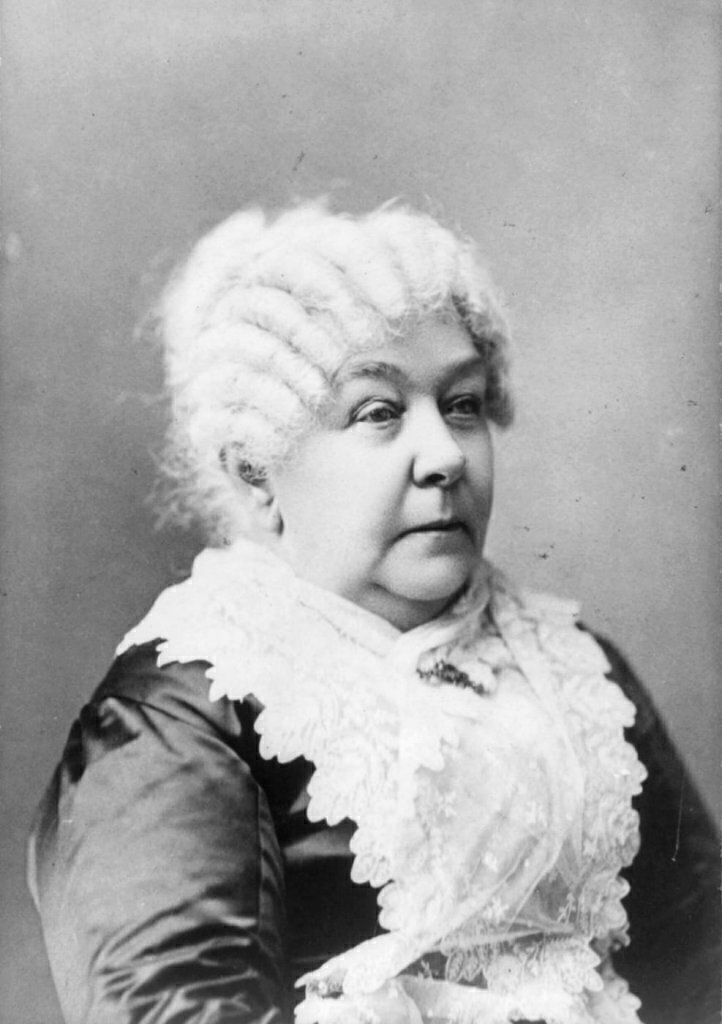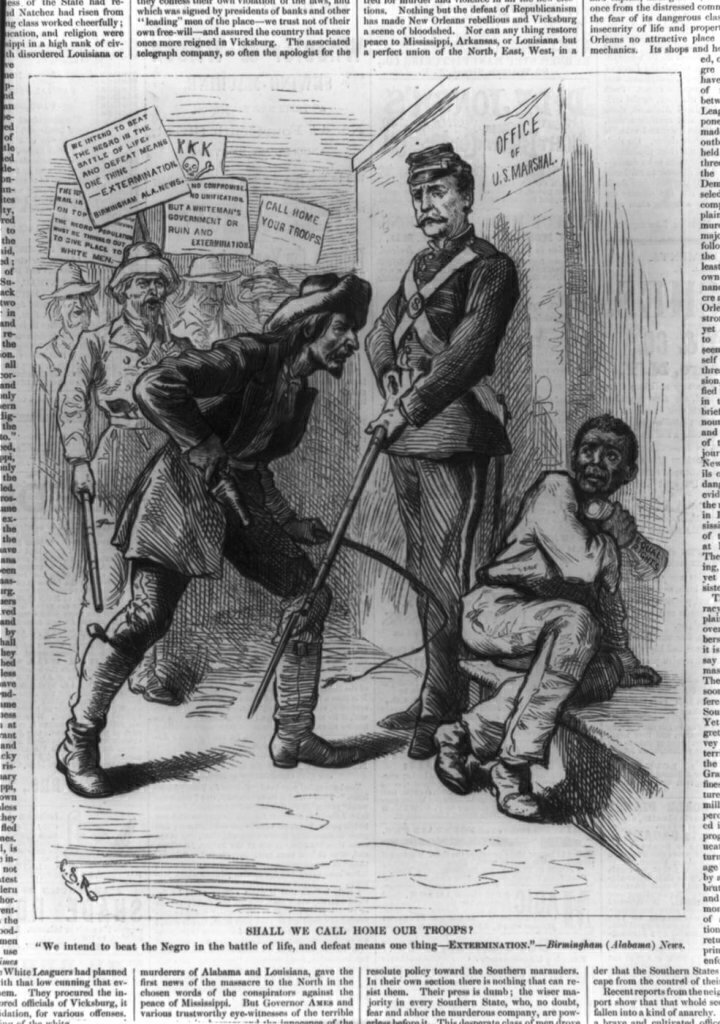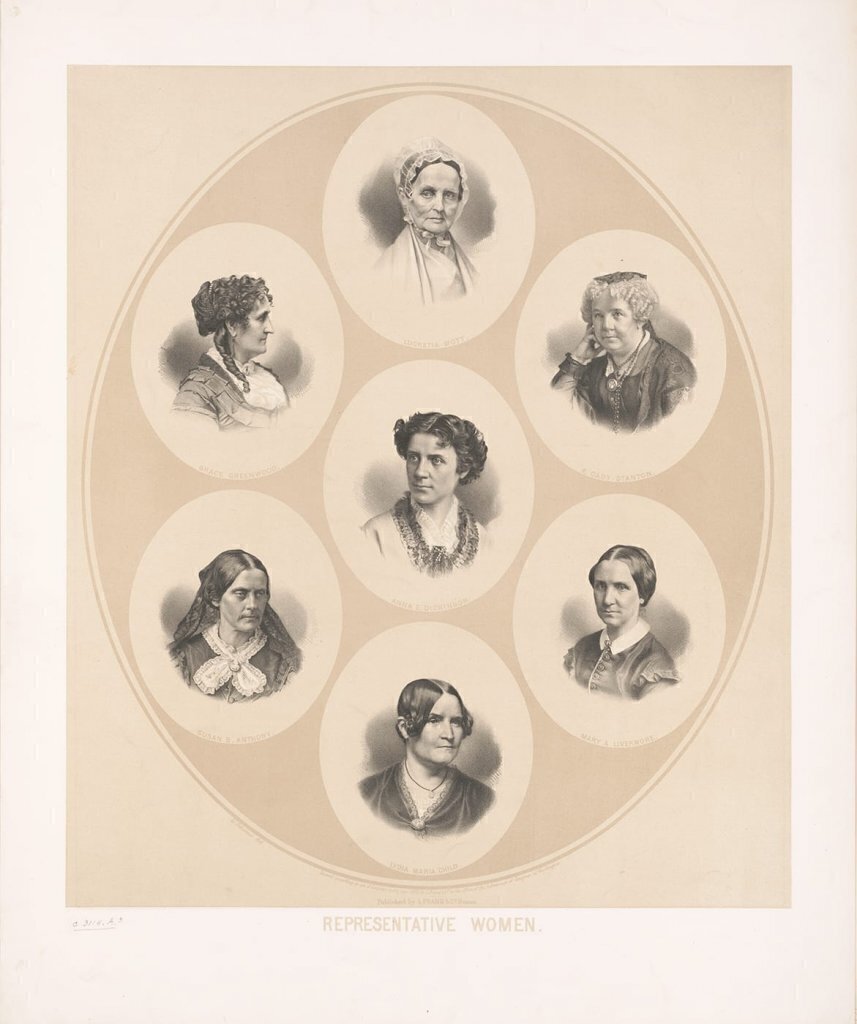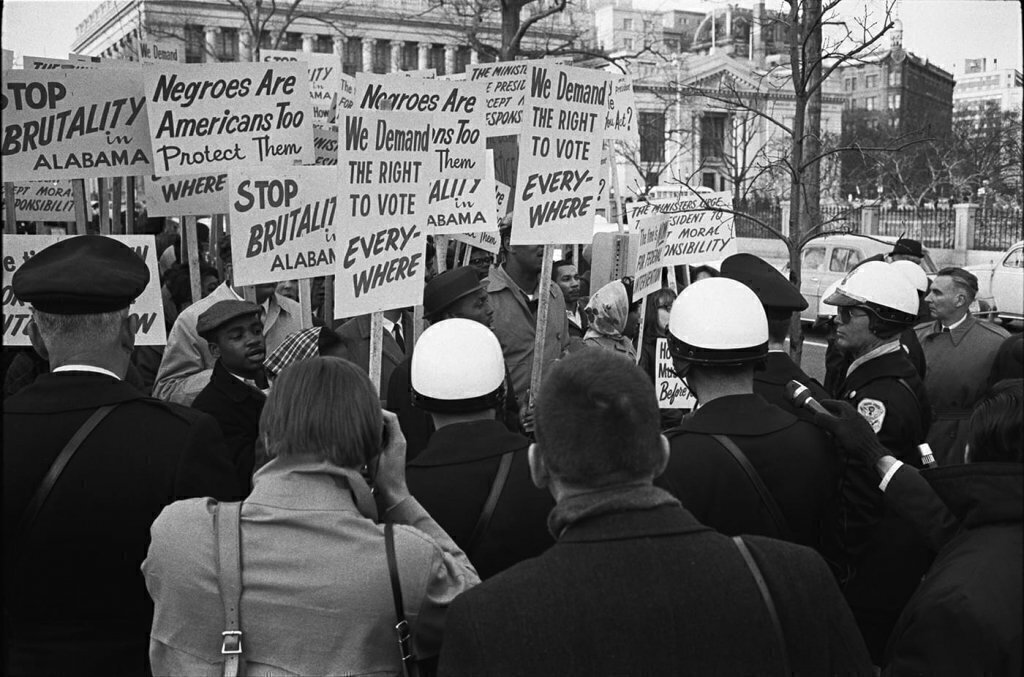15th Amendment
Right to Vote Not Denied by Race
The 15th Amendment banned racial discrimination in voting. In 1869, Congress debated several drafts—some of which provided more extensive protections. Even as each house passed broader proposals, Congress settled on language that only focused on voter discrimination based on race. The 15th Amendment was passed by Congress on February 26, 1869, and ratified by the states on February 3, 1870.
Special thanks to Kurt Lash from the University of Richmond School of Law for sharing his research and expertise. Kurt Lash, The Reconstruction Amendments: Essential Documents (University of Chicago Press, 2019).
Read the full textThe Drafting Process
Select a Provision to Learn How It Changed over Time
Select a provision to learn more about how it was drafted into existence
1867
1868
Event
July 9
1868
14th Amendment is ratified
1869
Ratification
January 11
1869
Suffrage amendment introduced in Congress
-
1869
Suffrage amendment introduced in Congress
-
1869
Congress passes the 15th Amendment
-
1870
15th Amendment is ratified
Result
Proposed in Congress
1869
-
Draft — January 11, 1869
Rep. Boutwell proposes suffrage amendment in House
1869
-
Draft — January 23, 1869
Sen. Henderson proposes suffrage amendment in Senate
1869
-
Draft — January 27, 1869
Rep. Bingham proposes a broader suffrage amendment
1869
-
Draft — January 28, 1869
Senate Judiciary Committee proposes an amendment
1869
-
Draft — February 8, 1869
Sen. Wilson proposes a broad suffrage amendment
1869
-
Draft — February 20, 1869
Rep. Bingham proposes broad discrimination protections
1869
Event
February 23
1869
House and Senate agree to a conference committee
1869
-
Draft — February 25, 1869
Conference Committee focuses on racial discrimination
1869
-
Draft — February 26, 1869
15th Amendment Final Text
1869
Ratification
February 26
1869
Congress passes the 15th Amendment
-
1869
Suffrage amendment introduced in Congress
-
1869
Congress passes the 15th Amendment
-
1870
15th Amendment is ratified
Result
Passed by Congress, sent to the states for ratification
1869
1869
Event
April 9
1869
Congress passes Requirement Act
1869
Event
May 12
1869
Women's suffrage movement splits
Final
Ratification
February 3
1870
15th Amendment is ratified
-
1869
Suffrage amendment introduced in Congress
-
1869
Congress passes the 15th Amendment
-
1870
15th Amendment is ratified
Result
Ratified by three-fourths of the states
Study the Process
Dig Deeper or Select Another Document to
Compare How the Language Changed over Time
Select a document
15th Amendment Final Text
The 15th Amendment transformed the Constitution—banning racial discrimination in voting. The final text was narrower than earlier proposals, focusing squarely on race and excluding protections for office-holding. In February 1869, the House passed it (144-44), followed by the Senate (39-13). As Frederick Douglass declared, “The revolution wrought in our condition by the fifteenth amendment to the Constitution of United States, is almost startling, even to me. I view it with something like amazement.”
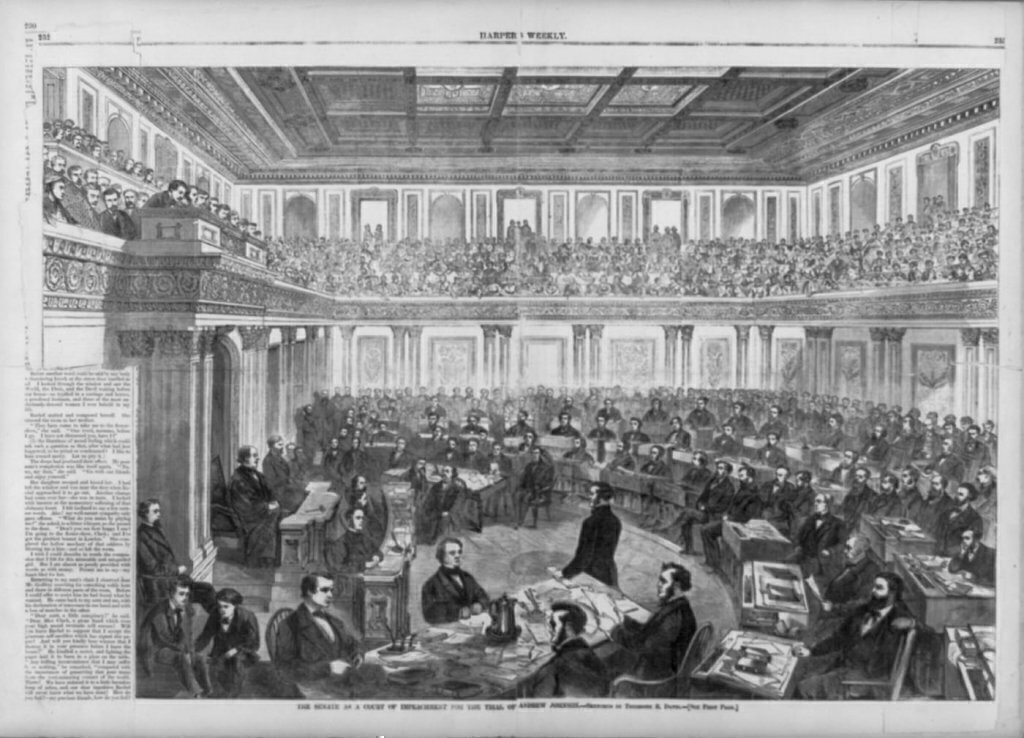
The 40th Congress met during the second half of Johnson's term in office and during the height of Reconstruction.
- February 26, 1869
- 40th Congress
- Final Amendment
Section One The right of citizens of the United States to vote shall not be denied or abridged by the United States or by any State on account of race, color, or previous condition of servitude. Section Two The Congress shall have power to enforce this article by appropriate legislation.
Select a document
15th Amendment Final Text
The 15th Amendment transformed the Constitution—banning racial discrimination in voting. The final text was narrower than earlier proposals, focusing squarely on race and excluding protections for office-holding. In February 1869, the House passed it (144-44), followed by the Senate (39-13). As Frederick Douglass declared, “The revolution wrought in our condition by the fifteenth amendment to the Constitution of United States, is almost startling, even to me. I view it with something like amazement.”

The 40th Congress met during the second half of Johnson's term in office and during the height of Reconstruction.
- February 26, 1869
- 40th Congress
- Final Amendment
Section One The right of citizens of the United States to vote shall not be denied or abridged by the United States or by any State on account of race, color, or previous condition of servitude. Section Two The Congress shall have power to enforce this article by appropriate legislation.
Analyze provisions from this text
Select a provision to learn more about the language and its implications.
Select a document
15th Amendment Final Text
The 15th Amendment transformed the Constitution—banning racial discrimination in voting. The final text was narrower than earlier proposals, focusing squarely on race and excluding protections for office-holding. In February 1869, the House passed it (144-44), followed by the Senate (39-13). As Frederick Douglass declared, “The revolution wrought in our condition by the fifteenth amendment to the Constitution of United States, is almost startling, even to me. I view it with something like amazement.”

The 40th Congress met during the second half of Johnson's term in office and during the height of Reconstruction.
Select a document
Select a document to learn more about how it changed over time
Select a provision to learn more what’s changed
- February 26, 1869
- 40th Congress
- Final Amendment
Section One The right of citizens of the United States to vote shall not be denied or abridged by the United States or by any State on account of race, color, or previous condition of servitude. Section Two The Congress shall have power to enforce this article by appropriate legislation.





